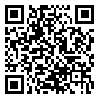Volume 20, Issue 1 (Spring 2025)
jmed 2025, 20(1): 1145-1135 |
Back to browse issues page
Download citation:
BibTeX | RIS | EndNote | Medlars | ProCite | Reference Manager | RefWorks
Send citation to:



BibTeX | RIS | EndNote | Medlars | ProCite | Reference Manager | RefWorks
Send citation to:
Zamani N, Yazdaninejad H. Stealthy Assessment in Game-Based Learning: A Narrative Review Study. jmed 2025; 20 (1) :1145-1135
URL: http://jmed.ssu.ac.ir/article-1-1559-en.html
URL: http://jmed.ssu.ac.ir/article-1-1559-en.html
Instructor, Department of Operating Room and Anesthesiology, School of Paramedical Sciences, Shahid Sadoughi University of Medical Sciences, Yazd, Iran & Instructor, Educational Development Center, Shahid Sadoughi University of Medical Sciences, Yazd, Iran , hyazdaninejhad@gmail.com
Abstract: (767 Views)
Introduction: Game-based learning (GBL) has great potential as an engaging learning method in medical education. Stealthy assessment, seamlessly integrated into the game, can provide valuable information about learners’ performance without causing the anxiety caused by traditional tests. The aim of this study is to determine the applications, benefits, and challenges of Stealthy assessment in GBL in medical education.
Methods: The presented narrative review was conducted by systematically searching PubMed, Scopus, Web of Science, ERIC, MagIran, IranDoc, and SID databases between 2010 and 2025. The keywords used in the search included “Stealthy assessment", "education", "formative assessment," and "game-based learning". Screening, data extraction, and content analysis were performed independently by two researchers based on the inclusion criteria.
Results: Ultimately, 25 studies were reviewed. Findings indicate that Stealthy assessment can provide personalized feedback, assessment of non-cognitive skills, increase in motivation, and valid data exhibition in game-based learning. Findings also indicate that Stealthy assessment faces challenges in the areas of accurate assessment design, data validity and reliability, ethical considerations, and cost and time.
Conclusion: Stealthy assessment in GBL environments can evolve the way we assess and learn, providing new opportunities for personalized feedback, measuring complex skills, and promoting self-regulation. But its practical success requires careful validation, consideration of ethical dimensions, and the development of longitudinal and comparative studies.
Methods: The presented narrative review was conducted by systematically searching PubMed, Scopus, Web of Science, ERIC, MagIran, IranDoc, and SID databases between 2010 and 2025. The keywords used in the search included “Stealthy assessment", "education", "formative assessment," and "game-based learning". Screening, data extraction, and content analysis were performed independently by two researchers based on the inclusion criteria.
Results: Ultimately, 25 studies were reviewed. Findings indicate that Stealthy assessment can provide personalized feedback, assessment of non-cognitive skills, increase in motivation, and valid data exhibition in game-based learning. Findings also indicate that Stealthy assessment faces challenges in the areas of accurate assessment design, data validity and reliability, ethical considerations, and cost and time.
Conclusion: Stealthy assessment in GBL environments can evolve the way we assess and learn, providing new opportunities for personalized feedback, measuring complex skills, and promoting self-regulation. But its practical success requires careful validation, consideration of ethical dimensions, and the development of longitudinal and comparative studies.
Type of Study: Review |
Subject:
Medical Education
Received: 2025/05/12 | Accepted: 2025/06/15 | Published: 2025/06/29
Received: 2025/05/12 | Accepted: 2025/06/15 | Published: 2025/06/29
Send email to the article author
| Rights and permissions | |
 |
This work is licensed under a Creative Commons Attribution-NonCommercial 4.0 International License. |







